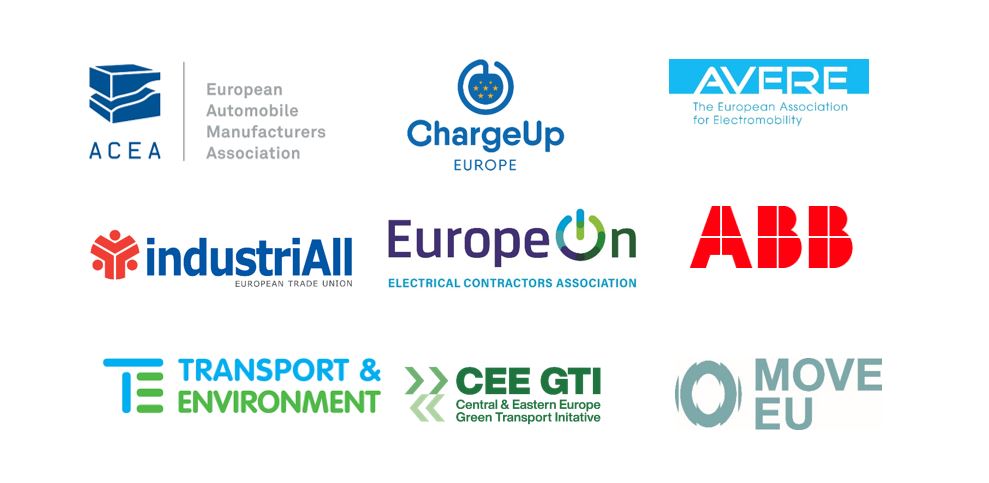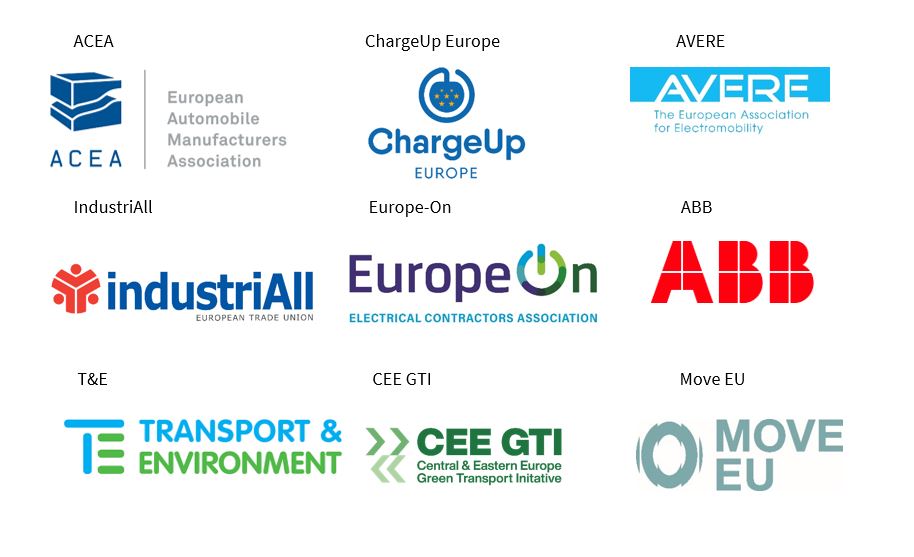
1 July 2021
To:
Ms Ursula von der Leyen, President of the European Commission,
Mr Frans Timmermans, Executive Vice-President for the European Green Deal,
Ms Adina Valean, Commissioner for Transport,
Copy to:
Mr Thierry Breton, Commissioner for Internal Market,
Ms Kadri Simson, Commissioner for Energy,
Mr Daniel Calleja Crespo, Director General of the Legal Service,
Mr Ismail Ertug, European Parliament, member of the TRAN Committee,
Ms Karima Delli, European Parliament Chair of the TRAN Committee,
Mr Pascal Canfin, European Parliament Chair of the ENVI Committee,
Mr Iztok Jarc, Slovenian Permanent Representative
Dear President von der Leyen, Vice-President Timmermans and Commissioner Vălean,
We, the undersigned, are writing to call on the European Commission to turn the current Alternative Fuels Infrastructure Directive (AFID) into an ambitious regulation to secure timely ramp-up of recharging and hydrogen refuelling infrastructure, alongside binding national targets for all road vehicle segments.
The ‘Fit for 55’ climate legislative package that the European Commission will propose on July 14th is a once in a lifetime opportunity to put the EU on track to meet its climate ambitions. To achieve this, a swift transition to zero emission mobility is essential but this also requires the right EU framework for the deployment of recharging and refuelling infrastructure to enable drivers to switch on time.
This revision of the AFI legislation is the opportunity to create an EU-wide single recharging and hydrogen refuelling market. Market players — be it automotive manufacturers, recharge point operators or customers — need this common single market to benefit from the right conditions to play their part in the mass adoption of zero emission road transport. This can only be achieved through an EU regulation.
A revision of the AFID under a new directive cannot provide the right framework as it would perpetuate the current patchwork of different national interpretations, implementation and requirements. The European Court of Auditors has recently highlighted that the current framework has led to a “fragmentation in electro-mobility” with “differences in the density of recharging infrastructure and the Member States’ EV ownership rates”. Pursuing in this direction would not be adequate or sufficient to address the challenge of deploying millions of public and private chargers in the next few years.
If the AFI is proposed as a regulation it can be swiftly implemented in the coming years with the targets and requirements applying as early as 2025 in line with the electric and hydrogen vehicle market growth. A regulation will also guarantee a coherent and interoperable network for consumers and professional transport operators via direct implementation. On the other hand, with a directive — given that transposition into national law of a directive can take multiple years — the implementation of the targets would be closer to 2030 and result in much fragmentation of the market as seen today. Such delay would not be acceptable given that the EV market is currently reaching a tipping point (14% new passenger cars in the first quarter of 2021) and EVs will be massively adopted in the next decade
Tomorrow’s EV recharging network and hydrogen refuelling network needs to be tightly harmonised in terms of accessibility, connectivity, interoperability, protocols, payment methods and other standardised requirements. Failing to create a regulation which addresses this could significantly increase the costs of deploying such a network which would in turn increase the costs of driving an EV and negatively impact consumer experience.
The various emobility ecosystem players undersigned are calling for an AFI regulation as the best way to match their needs and solve existing challenges. This will be decisive for making zero emission mobility a European success and European policymakers have the opportunity to act now and propose an AFI regulation on the 14th of July.
We remain at your disposal for any further assistance.
Yours sincerely,


